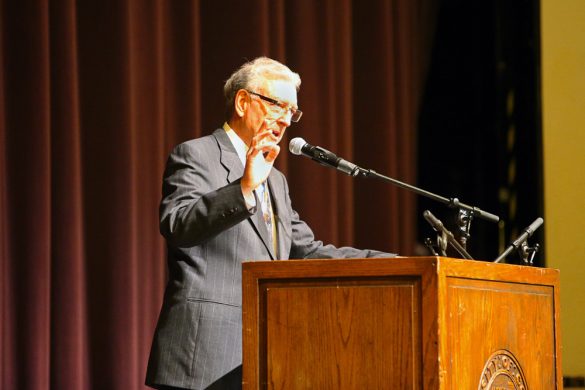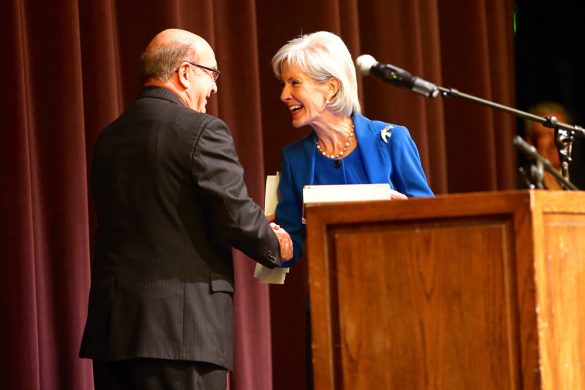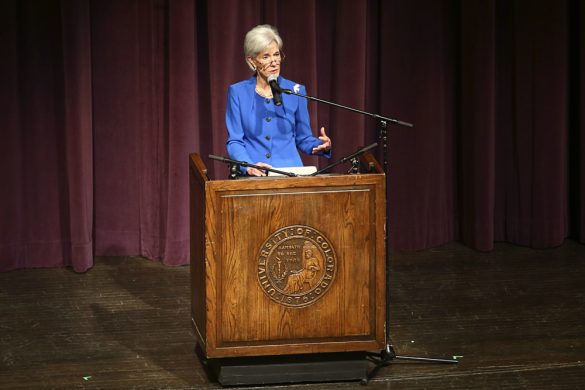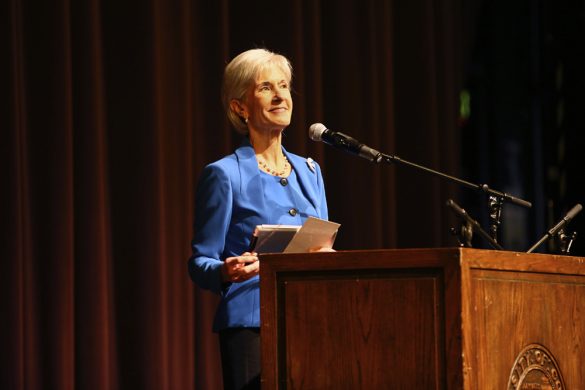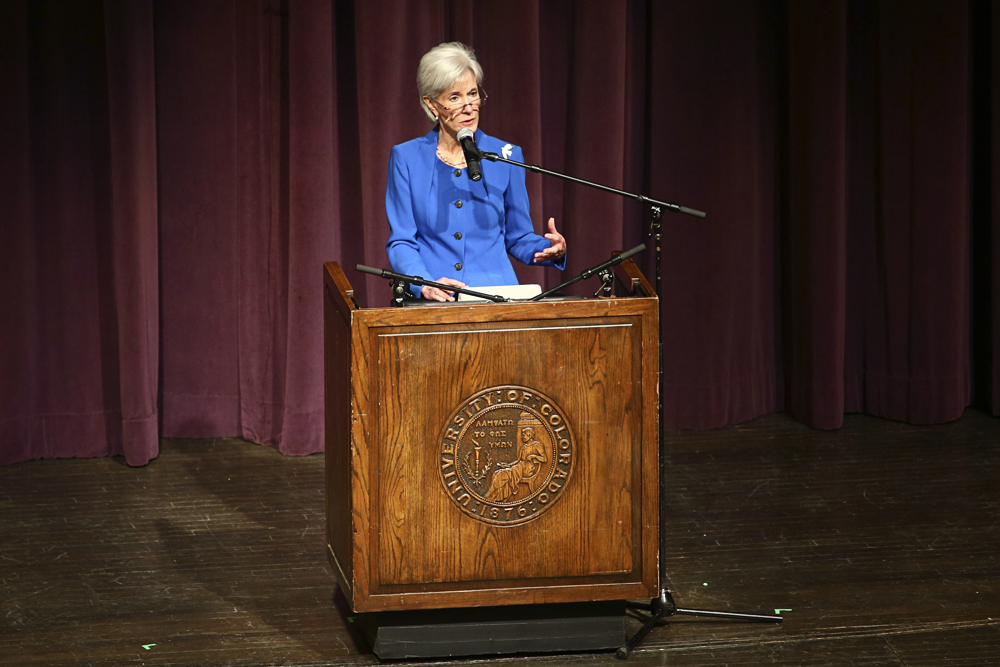
Kathleen Sebelius, the United States Secretary of Health and Human Services, addresses the crowd in Macky Auditorium at the 66th edition of the Conference on World Affairs. (Nigel Amstock/CU Independent)
United States Secretary of Health and Human Services Kathleen Sebelius delivered a keynote address titled �The Globalization of Health� in front of an overflowing crowd on Monday, April 7 in Macky Auditorium, as part of CU�s Conference on World Affairs.
CU Chancellor Phil DiStefano introduced Sebelius by praising the job she has done so far as Secretary of Health and Human Services, particularly her response to the floods that hit the Front Range in September.
�My sister is a graduate of the University of Colorado, so we hold this university dear in our family’s hearts,� Sebelius said to begin her address.
She introduced the topic of health by telling the story of when she was sworn in during the 2009 H1N1 (swine flu) pandemic. Sebelius said the pandemic helped her realize the importance of global cooperation when it comes to health, the pandemic being something the U.S. could not handle alone.
After that, Sebelius� address focused on three key �realities� of the modern global health system: disease outbreaks anywhere affect people everywhere; advances by any of us are advances for all of us; and the effects of global health affect more than just health.
Sebelius said humans are no longer separated by oceans and borders, which means that countries need to work together to stop outbreaks from turning into pandemics.
�Crises, emergencies, outbreaks; those are situations that don�t recognize or stop with national boundaries, and yet neither does our capacity to counter them,� Sebelius said.
She went on to say that countries� exports extend beyond goods to research and knowledge, and the more countries share these things with each other, the better off the global health system will be.
Sebelius called for global cooperation for healthcare.��It�s an economic agenda; it�s a humanitarian agenda; it�s a diplomatic agenda,� she said.
The overarching message of the speech was that in terms of health, what�s good for one country is good for every country, and the effects of a better global health system would be much stronger.
�We have two imperatives in this country,” Sebelius said. “First is to lead the community of nations and the second is we have to learn from the community of nations to expand our understanding on how best to improve health outcomes for our own people.”
A complete version of the address can be seen here until Friday: http://www.colorado.edu/cwa/webcast/1350.html.
Contact CU Independent Staff Writer Sam Klomhaus at Samuel.klomhaus@colorado.edu.

